
A NUN ON THE BUS: How All of Us Can Create Hope, Change, and Community. Copyright 2014 by Sister Simone Campbell, SSS. All rights reserved under International and Pan-American Copyright Conventions. By payment of the required fees, you have been granted the nonexclusive, nontransferable right to access and read the text of this e-book on-screen. No part of this text may be reproduced, transmitted, downloaded, decompiled, reverse-engineered, or stored in or introduced into any information storage and retrieval system, in any form or by any means, whether electronic or mechanical, now known or here in after invented, without the express written permission of HarperCollins e-books.
HarperCollins website: http://www.harpercollins.com
HarperCollins,  , and HarperOne are trademarks of HarperCollins Publishers.
, and HarperOne are trademarks of HarperCollins Publishers.
FIRST EDITION
Library of Congress Cataloging-in-Publication Data Campbell, Simone.
A nun on the bus : how all of us can create hope, change, and community / Sister Simone Campbell, with David Gibson.
pages cm
ISBN 9780062273543
EPub Edition March 2014 ISBN 9780062273567
1. Campbell, Simone. 2. Sisters of Social Service-Biography. 3. NunsUnited StatesBiography. 4. Social serviceReligious aspectsCatholic Church. 5. Christianity and justiceCatholic Church. 6. Faith-based human servicesUnited States. I. Title.
BX4705.C2458875A3 2014
282.73090512dc23
14 15 16 17 RRD(H) 10 9 8 7 6 5 4 3 2 1
In gratitude to our foremothers who have made this flowering of opportunity possible: 250+ years of women religious (nuns and sisters) in the United States, and more specifically all the people (board, staff, members) who have made NETWORK what it is today.
CONTENTS
N o one remembers who first said, Road trip. But it was immediately clear that going on the road was the way to use our moment of notoriety. I had a map in my head, and I knew we were going on a bus. I knew that it was going to be a wrapped bus, because someone said thats what you do with these sorts of tours. I didnt know what a wrapped bus was. I was thinking big yellow school bus, of course. Thats the way we sisters travel. Turns out that a wrapped bus is basically a huge wheeled billboarda bus was plastered in these amazing vinyl decals and presto! There was our message, and our mission, in big letters and bright colors for everyone to see.
That visibility was the whole idea, but we sisters were so new to this game that we still found it all so stunning and wonderfulfor the most part. We were planning a twenty-seven-hundred-mile trip across nine states in two weeks to highlight the ongoing suffering of our working poor and middle-class people, struggling to claw and scrape their way out of the stagnant economy. When the bus rental company personnel told us that we would need a campaign-style bus with just twelve seats plus a bathroom, kitchen area, lounge seating, and storage, we protested.
But were nuns. Were not used to such luxury, I told them.
Trust us, youre going to be on the bus a long time. Youll need it, they said. But if you want, we can make the outside look trashy.
Well, we didnt want trashy. But we did need a name. We needed something to push back against our critics and put out a positive message amid the rancorto show everyone just what we were doing, and who we were doing it for.
NETWORK was founded in 1972 by forty-seven Catholic sisters on a shoestring budget. They opened a two-person Washington office to lobby for federal policies and legislation that promote economic and social justice, and NETWORK has been pursuing that mission ever since. I was hired as NETWORKs executive director in 2004, in the midst of the Bush era. By 2012, although President Obama had brought many changes to Washington, the ascendancy of tea party Republicans in the 2010 midterm elections was thwarting efforts to strengthen or even maintain the safety net for poor and working-class Americans just when they needed it most. And proposals to cut taxes for wealthier Americans was only going to worsen an income gap that was close to becoming an unbridgeable chasm.
In April of 2012 at NETWORK, we were marking our fortieth anniversary, and the nagging question at our celebration was a big one: How do we get our message out? How do we let people know that we are doing this work and have been doing it for four decades? That is always a challenge for a small organization like ours, toiling in the trenches on Capitol Hill. But it is also the challenge for those who know that the Gospel has social consequences that must be lived. Our witness, our only media campaign, if you will, is to try to embody this Gospel message vibrantly and with the conviction of apostles fired by the flames of Pentecost.
At that fortieth anniversary party, we could look back with satisfaction at some tremendous gains that came despite fierce resistance. Chief among them was the passage of the health-care reform act two years earlier, in 2010. But now it was the spring of 2012, and we were in the midst of the presidential campaign. The poor and working poor and even the middle classwhat was left of itwere thwarted at every turn by an inequitable system that was rigged against them. At the same time, a polarized and paralyzed Washington establishment seemed more interested in scoring political points than in addressing the real needs, the true cry of the people. It was appalling!
So how could we let people know about our organization? How would we get our message out? We came up with a couple small ideas as we brainstormed at the anniversary party: take out a Google ad (because we could not afford a print ad), ask a current NETWORK member to sign up a new member, that sort of thing. Nothing game-changing, as they say in Washington.
But just four days after our celebration, on April 18, 2012, the Vatican answered our question for us: Rome announced, to everyones surprise, that it was censuring the umbrella group for the leadership of most of the Catholic sisters in the United States, more than fifty thousand of us, because, Vatican leaders said, we promoted radical feminist themeswhatever those are. Also, we were supposedly guilty of focusing on social justice concerns at the expense of opposing abortion and gay marriage and other doctrinal priorities for the hierarchy. They even named our little organization as a source of the problem. Well, yes, social justice is what Catholic sisters do. It is what the women religious have done for centuries. It is who we are, especially here in the United States. And it is specifically what NETWORK was founded for, which is apparently the reason the Vatican edict singled us out for a special mention. As if feeding the hungry, clothing the naked, and housing the homeless was not orthodox.
As the sages warn, Be careful for what you pray for! We wanted to let people know we existed and what we were doing, and we certainly got our wishthough by a route we never expected. American Catholics, and the public generally, reacted to the Vatican censure by expressing heartfelt support for the sisters at every turn. That seems to have surprised the Churchs leadership in Rome. But we had the job of turning this opportunity into a moment for mission. So a month later, on May 14, 2012, we had a planning meeting in our office with a wide range of our colleagues in like-minded secular organizations to try to figure out what exactly to do. There was only one ground rule: this was not about changing the Catholic Church; this was about advancing our mission for economic justice.

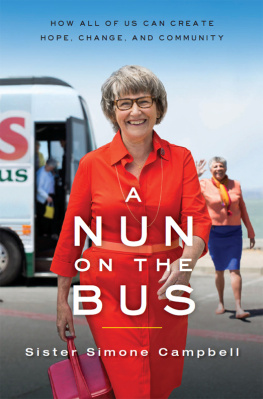
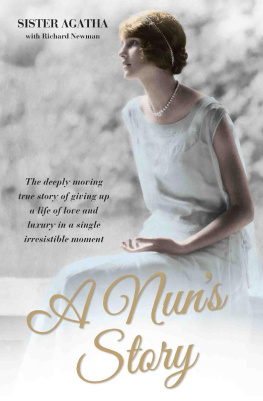


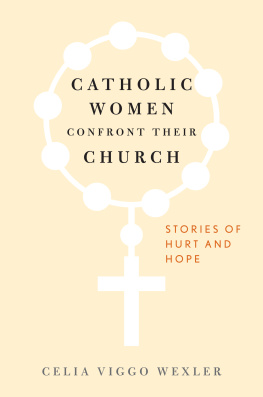

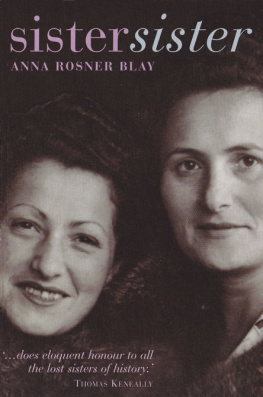



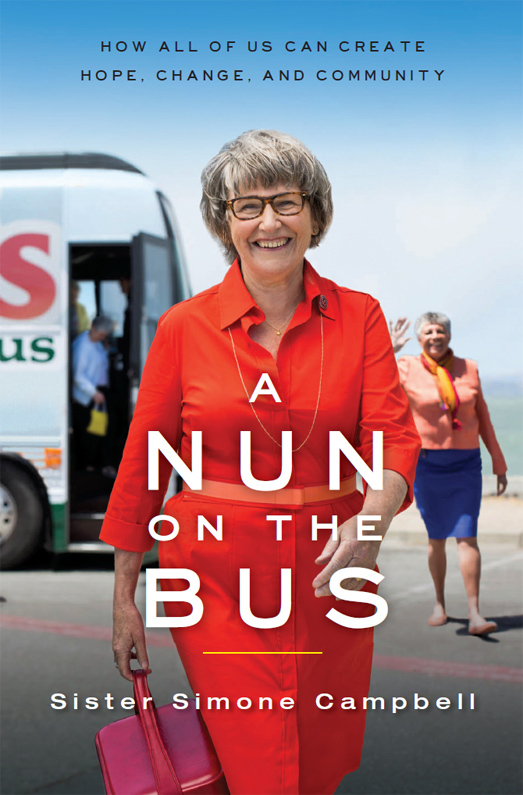

 , and HarperOne are trademarks of HarperCollins Publishers.
, and HarperOne are trademarks of HarperCollins Publishers.